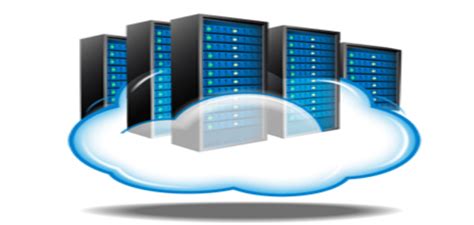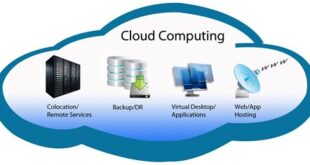
What are cloud servers?
In today’s digital era, cloud servers have become an integral part of our technological landscape. But what exactly are cloud servers and what makes them so powerful? Well, imagine having a virtual server that runs on virtual machines, delivering a potent combination of flexibility, scalability, and efficiency. That’s what cloud servers are all about.
Cloud servers offer a remarkable alternative to traditional physical servers, allowing users to access computing resources remotely. These servers are hosted on a virtual infrastructure, leveraging the power of the internet to deliver a wide range of benefits. Whether you are an individual or a business, cloud servers offer a reliable and cost-effective solution to fulfill your computing needs.
One intriguing aspect of cloud servers is their dynamic nature. Unlike physical servers, cloud servers can be easily scaled up or down based on demand. In simpler terms, it means that you have the freedom to add or remove computing resources as per your requirements. This scalability feature ensures that you never run out of computing power, allowing your applications to perform optimally.
With cloud servers, you can bid farewell to the limitations of physical infrastructure. Since these servers operate on virtual machines, they eliminate the need for physical hardware, which can be bulky and expensive. Instead, you can tap into the immense computing power of the cloud, opening doors to endless opportunities for innovation and growth.
Cloud servers also provide unparalleled flexibility. Thanks to their virtual nature, these servers can be accessed from anywhere in the world, as long as you have an internet connection. This level of flexibility allows businesses to streamline their operations, enable remote working, and foster collaboration among their teams, irrespective of their geographical locations.
Furthermore, cloud servers offer a robust security framework to protect your data and sensitive information. Reputable cloud service providers invest heavily in security measures such as encryption, firewalls, and access controls, ensuring that your data remains secure and confidential. This enhanced security provides you with peace of mind, knowing that your valuable assets are in safe hands.
When it comes to affordability, cloud servers are hard to beat. The pay-as-you-go model allows you to pay only for the computing resources you consume, offering a cost-effective solution for individuals and businesses of all sizes. Additionally, cloud servers eliminate the need for expensive maintenance and upgrades, saving you both time and money.
In conclusion, cloud servers have revolutionized the way we access computing resources. Their virtual nature provides flexibility, scalability, and cost-effectiveness, while ensuring robust security measures to safeguard your data. Whether you are a small business looking to streamline your operations or an individual seeking powerful computing capabilities, cloud servers are the answer to all your needs.
Cloud computing security is of utmost importance to protect your data. Learn how to enhance it here!
How do cloud servers work?
Cloud servers, such as the one provided by [your cloud server provider], are revolutionizing the way businesses and individuals manage their digital infrastructure. These servers operate by harnessing the power of virtualization technology, which allows for the creation of multiple virtual machines that run various operating systems and applications on a single physical server. The result is a highly efficient system that maximizes resource utilization and offers unparalleled flexibility.
Unlike traditional servers that rely on dedicated hardware, cloud servers leverage virtualization to create virtual machines (VMs) that compartmentalize the resources of the physical server. Each VM acts as a self-contained unit, running its own instance of an operating system and applications. This means that multiple VMs can coexist on the same physical server, sharing its computational power, storage, and network resources.
The virtualization technology utilized by cloud servers is often based on a hypervisor, a software layer that enables the creation and management of VMs. The hypervisor acts as a bridge between the physical server’s hardware and the VMs, abstracting the underlying resources and presenting them to each VM as if they were dedicated solely to that instance.
One of the key advantages of cloud servers is their ability to scale resources up or down on-demand. Since multiple VMs can run on a single physical server, additional resources can be allocated to accommodate increased traffic or workload without the need for physical hardware upgrades. This scalability is particularly valuable for businesses that experience seasonal fluctuations in demand or sudden spikes in traffic.
Furthermore, cloud servers offer high levels of reliability and redundancy. By distributing multiple VMs across various physical servers in different locations, any hardware failures or issues with one server will not result in data loss or downtime. This built-in redundancy ensures that applications and websites hosted on cloud servers remain accessible and operational even in the face of hardware failures or natural disasters.
The management and configuration of cloud servers are typically done through web-based control panels or application program interfaces (APIs). These interfaces allow users to provision, monitor, and control their virtualized resources, providing a user-friendly and intuitive way to manage their cloud infrastructure.
In conclusion, cloud servers are transforming the way businesses and individuals manage their digital infrastructure. By utilizing virtualization technology, these servers offer flexibility, scalability, and reliability, making them an ideal choice for a wide range of applications. Whether you’re running a small website or managing a large-scale enterprise, cloud servers provide the tools and capabilities necessary to meet your needs and propel your digital presence to new heights.
Cloud networking enables communication and connectivity in cloud environments. Explore cloud networking here!
Types of cloud servers
When it comes to cloud servers, there are various types available, each offering a range of features and deployment options to cater to specific business requirements. Let’s take a closer look at the four main types: public, private, hybrid, and dedicated servers.
Public Servers
Public servers are the most common type of cloud servers used by businesses. As the name suggests, these servers are owned and operated by a cloud service provider and are accessible to the general public over the internet. Public servers are known for their affordability and scalability, as organizations can scale up or down their resources based on their needs. This makes them ideal for small businesses or startups looking for cost-effective solutions without the hassle of managing their own infrastructure.
Private Servers
Unlike public servers, private servers are dedicated solely to one organization. This means that the entire infrastructure, including hardware, storage, and networking resources, is solely utilized by a single business. Private servers offer enhanced control, security, and performance as they are not shared with other users. Organizations with more sensitive data or compliance requirements often opt for private servers to have complete control over their resources and ensure data protection.
Hybrid Servers
Hybrid servers combine the best of both public and private servers. They provide a flexible and scalable infrastructure that allows organizations to take advantage of both on-premises resources and cloud-based services. Hybrid servers are suitable for businesses with varying workloads or those that want to maintain control over critical applications on their own infrastructure while leveraging the benefits of the cloud for non-sensitive workloads. It offers the flexibility to seamlessly scale resources up or down as needed, making it an ideal choice for dynamic businesses.
Dedicated Servers
Dedicated servers are solely dedicated to a single organization, just like private servers. However, unlike private servers, dedicated servers are hosted and managed by a cloud service provider. This means the organization does not need to worry about the infrastructure’s maintenance and management. Dedicated servers offer high levels of performance, security, and customization options, making them suitable for businesses with resource-intensive workloads or specific requirements. They provide organizations with the utmost control and freedom to tailor the server environment according to their needs.
In conclusion, the world of cloud servers offers a variety of options to cater to different business needs. Whether you are looking for affordability and scalability, complete control and privacy, flexibility and seamless integration, or high-performance and customization, there is a type of cloud server to suit your organization. It’s crucial to understand your requirements and evaluate the features and benefits of each type before making a decision. Cloud servers have revolutionized the way businesses operate and continue to shape the future of the digital landscape.
A cloud computing infrastructure refers to the hardware and software components that enable cloud computing services. Learn more about it here!
Cloud servers vs. traditional servers
When it comes to choosing between cloud servers and traditional servers, there are several factors to consider. Cloud servers offer a multitude of advantages over their traditional counterparts, including greater flexibility, scalability, and cost-effectiveness. By eliminating the need to invest in expensive hardware and infrastructure upfront, cloud servers provide businesses with the opportunity to scale their operations without incurring significant capital expenses.
Traditional servers, on the other hand, require businesses to invest in physical hardware, which can be both expensive and time-consuming. These servers are housed on-premises, meaning that companies need to allocate space within their premises to house them securely. Additionally, regular maintenance tasks such as software updates and hardware upgrades need to be carried out manually, which can consume valuable time and resources.
In contrast, cloud servers operate through virtualization technology, allowing businesses to access computing resources and storage remotely. This flexibility enables companies to scale their operations up or down based on their current needs, without the burden of physical infrastructure limitations. It also means that businesses can quickly adapt to changing market conditions and customer demands, ensuring that their services are always available and responsive.
Furthermore, the scalability of cloud servers ensures that businesses only pay for the resources they actually use. With traditional servers, companies are often required to purchase fixed amounts of hardware and software licenses, regardless of their actual usage. This can result in wasted resources and unnecessary expenses. On the other hand, cloud servers offer a pay-as-you-go model, where businesses are billed based on their actual usage. This allows companies to optimize their costs and allocate their budget more efficiently.
The cloud server model also provides enhanced security measures and disaster recovery options, compared to traditional servers. Cloud service providers invest heavily in robust security protocols and data backup systems, ensuring that their clients’ data is protected and accessible even in the event of hardware failures or natural disasters. This high level of reliability can bring peace of mind to businesses, knowing that their critical information is safeguarded and their operations can continue uninterrupted.
Moreover, as cloud servers operate through a network of interconnected servers, they have no single point of failure. This means that even if one of the servers experiences an issue, the workload can be automatically shifted to another server without any disruption to the services. On the contrary, traditional servers rely on a single physical device, making them more susceptible to failures and downtime.
In conclusion, the shift towards cloud servers has revolutionized the way businesses manage their IT infrastructure. By offering greater flexibility, scalability, and cost-effectiveness, cloud servers have become the preferred choice for many organizations. With the ability to adapt to changing demands, optimize costs, and ensure high levels of security and reliability, cloud servers provide a competitive edge in today’s fast-paced digital landscape.
Considerations for choosing cloud servers
In today’s digital era, businesses are increasingly relying on cloud servers to store and manage their data. The flexibility, scalability, and cost-effectiveness of cloud servers make them an attractive option for companies of all sizes. However, choosing the right cloud server provider can be a daunting task. There are several factors that need to be taken into consideration in order to ensure the best fit for your business.
One of the key considerations when selecting cloud servers is the performance requirements of your business. What are your specific needs in terms of processing power, memory, and network speed? It is essential to assess your current and future needs to ensure that the cloud servers will be able to handle the workload efficiently. Furthermore, consider the geographic proximity of the server to your target audience, as this can impact the latency and overall performance of your applications or websites.
Security is another crucial aspect to consider when choosing cloud servers. Data breaches and cyber-attacks are a constant threat in today’s digital landscape. Therefore, it is important to select a cloud server provider that prioritizes security measures such as data encryption, firewalls, intrusion detection systems, and regular security audits. Additionally, ensure that the provider complies with industry standards and regulations, such as GDPR or HIPAA, if applicable to your business.
Storage capacity is yet another factor to take into account. Assess your storage needs based on the size and type of data you will be storing on the cloud servers. Consider whether you require high-performance storage for frequently accessed data or if slower, cost-effective storage options would suffice for your business. It is also essential to evaluate the scalability options offered by the cloud server provider, as your storage needs may change over time.
Pricing models vary among different cloud server providers, so it is important to understand the cost structure and determine what fits within your budget. Some providers offer pay-as-you-go models, where you only pay for the resources you consume, while others may offer fixed monthly or yearly plans. Assess your budget and projected resource usage to select the pricing model that is most cost-effective for your business.
Provider reputation should also be considered when choosing cloud servers. Research the provider’s track record and customer reviews to ensure their reliability, quality of service, and customer support. It is advisable to opt for well-established providers with a proven track record, as they are more likely to offer stable and reliable services. Additionally, consider the provider’s financial stability and their ability to invest in infrastructure and technological advancements.
Lastly, consider the level of technical support and customer service provided by the cloud server provider. In case of any issues or technical difficulties, it is crucial to have prompt and efficient support available. Look for providers that offer 24/7 support, with multiple channels of communication such as live chat, phone support, and email. A responsive and knowledgeable support team can help resolve any issues quickly and minimize downtime for your business.
When choosing cloud servers, it is essential to consider a range of factors such as performance requirements, security needs, storage capacity, pricing models, provider reputation, and technical support. Taking the time to evaluate these considerations will ensure that you select the best cloud server provider that aligns with the unique needs and goals of your business.
Cloud servers are an essential part of cloud computing. Find out more about them here!
Popular cloud server providers
When it comes to cloud server providers, there are numerous reputable options available in the market. These providers offer a wide range of services and pricing options to cater to different needs. Some of the most well-known cloud server providers include Amazon Web Services (AWS), Microsoft Azure, Google Cloud Platform, IBM Cloud, and Alibaba Cloud.
Amazon Web Services (AWS), a subsidiary of Amazon, is considered one of the pioneers in the cloud computing industry. With its extensive range of services and tools, AWS has become a popular choice for individuals and businesses alike. From virtual private servers to storage solutions, AWS offers a comprehensive suite of cloud services.
Microsoft Azure, on the other hand, is Microsoft’s cloud computing platform that provides a range of services, including virtual machines, databases, and networking solutions. With its strong integration with other Microsoft products and services, Azure is often preferred by organizations that already use Microsoft technologies.
Google Cloud Platform, as the name suggests, is Google’s cloud computing offering. It provides a wide range of services, including compute instances, storage solutions, and machine learning tools. Google’s vast network infrastructure and data centers make it a reliable option for businesses needing scalable and reliable cloud resources.
IBM Cloud, formerly known as IBM Bluemix, is IBM’s cloud computing platform that offers a variety of services, including bare metal servers, virtual servers, and object storage. IBM’s strong reputation in the enterprise market and its focus on security and compliance make it a popular choice for businesses with specific requirements.
Alibaba Cloud, the cloud computing arm of Alibaba Group, is a major player in the Chinese market and has been expanding its presence internationally. With a wide range of services and strong focus on scalability, Alibaba Cloud is particularly suited for businesses looking to tap into the growing Chinese market or needing cloud resources in the Asia-Pacific region.
These cloud server providers offer diverse services and pricing options to cater to the needs of different users. It is important to consider factors such as scalability, reliability, security, and cost when choosing a cloud server provider. Additionally, it is advisable to evaluate the specific requirements of your business and match them with the offerings of the different providers to make an informed decision.
In conclusion, cloud server providers such as Amazon Web Services, Microsoft Azure, Google Cloud Platform, IBM Cloud, and Alibaba Cloud have established themselves as leading players in the market. Each provider offers a range of services and pricing options to meet the diverse needs of users. By assessing factors such as scalability, reliability, security, and cost, businesses can find the most suitable cloud server provider to support their operations and growth.
Cloud technology plays a crucial role in delivering cloud services. Discover how it works here!
Challenges of using cloud servers
Cloud servers have become increasingly popular due to the array of benefits they offer. However, it is important to address and effectively manage the challenges that come with their use. These challenges include potential downtime, data security concerns, vendor lock-in, and regulatory compliance issues. By understanding and proactively managing these challenges, businesses can ensure a successful adoption of cloud servers and reap their full potential.
Potential downtime is a concern that businesses must address when utilizing cloud servers. While cloud service providers strive to maintain high uptime, there is always a small possibility of experiencing temporary service disruptions. This could be due to various factors such as network outages, hardware failures, or even scheduled maintenance. To mitigate the impact of potential downtime, businesses can explore options like redundancy and failover mechanisms, choosing reliable service providers, and developing contingency plans.
Data security concerns are another significant challenge associated with using cloud servers. Storing sensitive data in a remote server can raise apprehensions about unauthorized access or data breaches. However, it is vital to note that cloud service providers invest heavily in robust security measures to protect their clients’ data. Encryption, multi-factor authentication, and regular security audits are some of the techniques employed to ensure data privacy and security. Additionally, businesses can enhance security by implementing strong access controls, regularly monitoring and updating their systems, and educating their employees about best security practices.
Vendor lock-in is a potential challenge that organizations must consider when adopting cloud servers. Switching cloud service providers or migrating to on-premises infrastructure may not always be seamless. This lock-in could occur due to the specific technology stack or proprietary tools used by the provider. To mitigate the risk of vendor lock-in, businesses can carefully evaluate the terms and conditions of the service agreement, seek interoperability and data portability options, and consider using multi-cloud or hybrid cloud strategies to maintain flexibility and avoid relying solely on one vendor.
Regulatory compliance is another key challenge that businesses need to address when using cloud servers. Different industries have varying compliance requirements that cloud service providers must adhere to. It is crucial for organizations to ensure that their chosen provider meets the necessary regulatory standards for their industry. Conducting due diligence, reviewing audit reports, and verifying compliance certifications can help minimize the risks associated with regulatory non-compliance.
In conclusion, while cloud servers offer numerous benefits, organizations must be prepared to address and manage the challenges that come along with their usage. By effectively addressing potential downtime, data security concerns, vendor lock-in, and regulatory compliance issues, businesses can successfully adopt cloud servers and capitalize on their capabilities. It is important to stay proactive, assess risks, and implement appropriate measures to overcome these challenges and fully leverage the advantages of cloud computing.
 Cloud Solution All Cloud Information
Cloud Solution All Cloud Information








